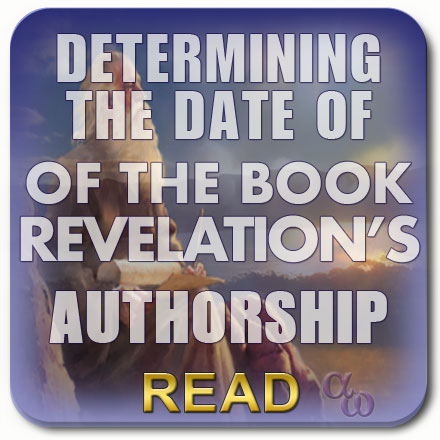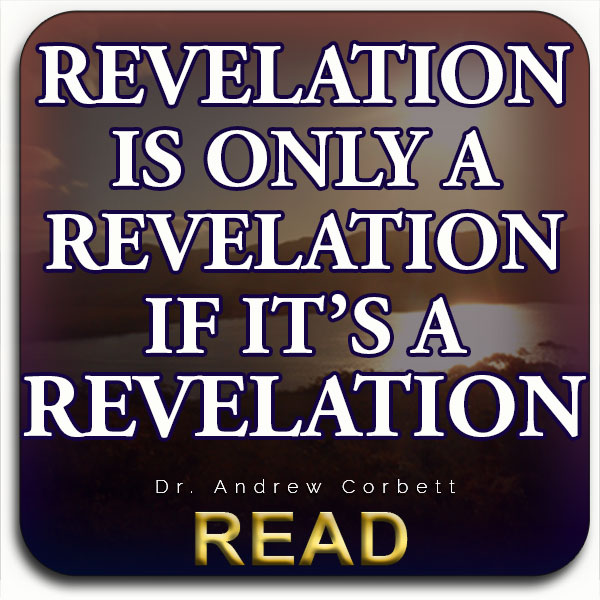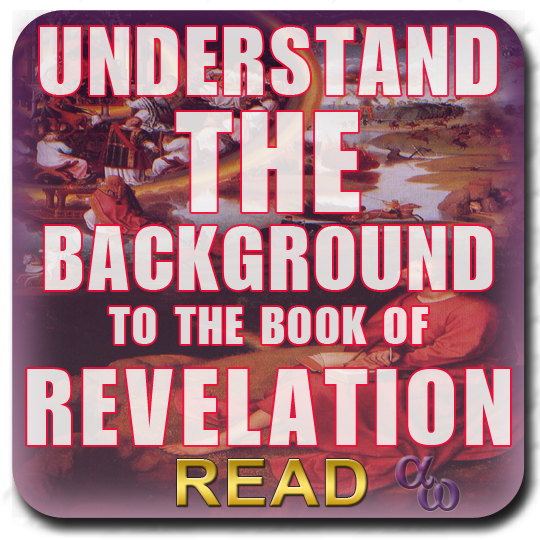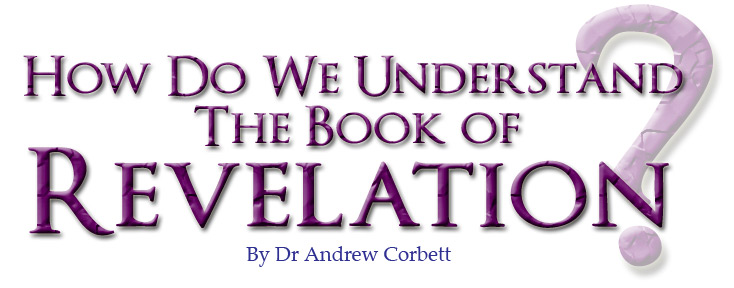
by Andrew Corbett | Jul 11, 2018 | Book of Revelation |
Much damage to the credibility of the Bible has nearly been done by those who twist the contents of the Book of Revelation to force it to sound like it refers to the events of our present day. Time and time again, so called Bible-Prophecy teachers have been left with egg on their faces as their ridiculous speculations have proved to be completely wrong. Our Administrator forwarded onto me a copy of an email we were sent claiming that our understanding of the Book of Revelation was wrong and that we would be humiliated by the Lord when the Rapture took place on October 17th 2009.
You’ll notice that I am writing this brief article after this ‘day of humiliation’. But still the sillyness continues to be rolled out by many TBN preachers who (even inadvertently) misrepresent the Book of Revelation by claiming that it is written to us about our day. (I have compiled a small list of such of failed interpretations.) In the unlikely event that you are a now cynical believer reading this article, or even in the more unlikely event that you are a complete skeptic about Christianity and the Bible reading this article, I hope to take just a few minutes of your time to offer an alternate understanding of the Book of Revelation that will actually present a credible case for Christianity and the Bible.

by Andrew Corbett | May 31, 2018 | Book of Revelation |
It would be remiss of any serious student of Revelation not to at least do a cursory examination of the historical context to which Revelation is back-dropped. The first point of reference would have to be to determine when Revelation was written. Most scholars regard there being only two possible dates. Dr. Leon Morris explores this adequately in his Tyndale Commentary series volume on Revelation, and I recommend that this widely available commentary be read. In the case of most books of the Bible, determining the date of its authorship, while certainly important, is not necessarily crucial to its interpretation. But this is absolutely not the case with the Book of Revelation. Some tradition has up until recent times regarded the date Revelation’s authorship to be around 95AD. This has been based almost entirely on a misunderstanding of one vague statement by the second century Church Father, Irenaeus.

by Andrew Corbett | Feb 4, 2018 | Book of Revelation |
I was once dining with a theologian who had lectured on the Book of Revelation for years. He had even been to Patmos to conduct teaching tours of the Apocalypse. But like some theologians, he felt that Revelation was a complete enigma. He was adamant that there was not any particular method to understand everything in the Book of Revelation. His claim is believed by many. He cited Deuteronomy 29:29 to justify his belief that it was impossible to understand the Book of Revelation, claiming that The Apocalypse was a divine secret. But there is one immediate and gargantuen problem with this idea: for Revelation to be a revelation it has to be a revelation. There is a certain hang-over from Post-Modernism that makes the idea of the Book of Revelation being divinely vague very appealing. Post-Modernism relishes in the idea that nothing can be known for certain. It despises the notion of being ‘right’ and extols the notion of uncertainty. If it can not be understood, then it can never be a revelation!

by Andrew Corbett | Nov 8, 2017 | Book of Revelation |
After years of studying the Book of Revelation, I have become persuaded of the Classical Preterist Position. One of the first objections raised against Preterism (often confused with Hyper-Preterism, or, ‘Pantellism’) is based on Revelation 1:7. Which says that when Christ ‘comes’, ‘every eye will see Him.’ Opponents of Preterism offer what they think is a death-blow to Preterism with this apparent ‘knock-out’ verse. As a Preterist, I have to admit, if their interpretation of this verse is correct, Preterism can not be true. Therefore, how we understand this verse will either destroy the validity of Preterism or, could it possibly validate it?

by Andrew Corbett | Apr 19, 2017 | Book of Revelation |
Anyone who studies the Book of Revelation will soon come across the term “apocalyptic”. The language of the Book of Revelation is regarded as “apocalyptic”. Similarly, the student of Revelation will read that “apocalyptic” has to do with symbolic prophetic language regarding the end of the world. This definition though is somewhat unsubstantiated. “Apocalyptic” does not mean the end of the world, rather it means to unveil. It comes from the Greek word, apocalypsis. This is the original Greek word for the English word “Revelation”. Thus, while the nature of the term apocalyptic is certainly symbolic, certainly prophetic, and certainly about the ending of something, but it is not necessarily (if at all) about the end of the world.

by Andrew Corbett | Feb 22, 2016 | Bible Prophecy |
“It was the best of times, it was the worst of times.” begins the Dickens’ classic, The Tale of Two Cities. For many End-Times preachers, these are the worst of times. This idea is reinforced repeatedly by many Christians who feel that the world is indeed getting worse and worse. When I have lectured on Ethics or Eschatology both here and abroad, I have been challenged by students who despair that Christians can not hope to have a godly influence on society since the Bible apparently says that the last days will be dark and full of rampant evil. I have generally responded to these claims by asking if there was another time in history in which they would rather have lived? When students think about it, they usually conclude that there is no better time to be alive than now. But this presents a dilemma for those Christians who have bought into the idea that these are the “worst of times”, because the evidence suggests that these are the best of times.
I’m a Preterist. I’m not a Futurist. This means that I consider the Bible needs to read and understood as it was intended. I consider this to be taking the Bible “literally”. This kind of literalism distinguishs between a metaphor, an allegory, poetic parallelism, narrative, and didactic prescriptions. I therefore regard Christ’s statements about His coming and the Kingdom of God being “near” and “at hand” as being intended to convey the idea that His coming and the Kingdom of God on earth was about to commence within the life-time of Christ’s original audience.

by Andrew Corbett | Oct 5, 2015 | Bible Prophecy, Eschatology |
Who is the man identified in The Book of Revelation with the number, “666”? This article sheds light on this controversial question. I grew up in a church where regular Bible-prophecy teachers hinted that they knew the identity of the coming ‘Antichrist’. This man, was, according to these teachers, also referred to in Scripture as “the Beast” and “the man of lawlessness”. It wasn’t until I started to realise that these teachers were not only guessing about this Antichrist, but pretty much everything else they taught was a guess as well, that I began to understand what the Bible really says about these things.

by Andrew Corbett | Feb 8, 2011 | Book of Revelation |
We all approach the Bible with certain ideas that color the way we read it. This is especially the case with the Book of Revelation. While certain parts of the Bible are difficult to understand (largely because we are separated by time, distance, language, personal disconnection and cultural practices), the Book of Revelation is particularly difficult to understand. This is borne out by the plethora of interpretations that have been offered about it.









